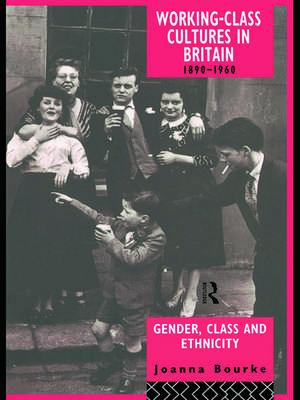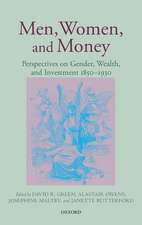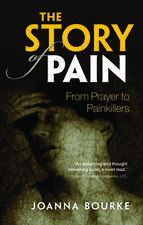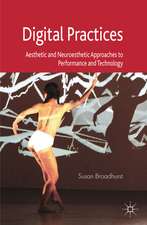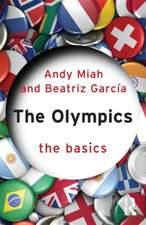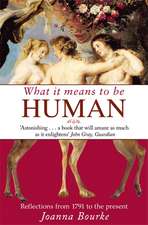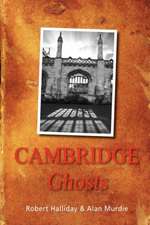Working Class Cultures in Britain, 1890-1960: Gender, Class and Ethnicity
Autor Prof Joanna Bourke, Joanna Bourkeen Limba Engleză Hardback – 9 dec 1993
| Toate formatele și edițiile | Preț | Express |
|---|---|---|
| Paperback (1) | 366.46 lei 6-8 săpt. | |
| Taylor & Francis – 9 dec 1993 | 366.46 lei 6-8 săpt. | |
| Hardback (1) | 1000.30 lei 6-8 săpt. | |
| Taylor & Francis – 9 dec 1993 | 1000.30 lei 6-8 săpt. |
Preț: 1000.30 lei
Preț vechi: 1219.88 lei
-18% Nou
Puncte Express: 1500
Preț estimativ în valută:
191.43€ • 199.12$ • 158.04£
191.43€ • 199.12$ • 158.04£
Carte tipărită la comandă
Livrare economică 15-29 aprilie
Preluare comenzi: 021 569.72.76
Specificații
ISBN-13: 9780415098977
ISBN-10: 0415098971
Pagini: 288
Ilustrații: 50 tables
Dimensiuni: 138 x 216 x 28 mm
Greutate: 0.45 kg
Ediția:1
Editura: Taylor & Francis
Colecția Routledge
Locul publicării:Oxford, United Kingdom
ISBN-10: 0415098971
Pagini: 288
Ilustrații: 50 tables
Dimensiuni: 138 x 216 x 28 mm
Greutate: 0.45 kg
Ediția:1
Editura: Taylor & Francis
Colecția Routledge
Locul publicării:Oxford, United Kingdom
Recenzii
'Billed as a student text, but it is much more exciting than that. What distinguishes the book is the originality of its argument and structure' - History Today
Cuprins
ACKNOWLED GMENTS, ,INTRODUCTION, NOTE ON THE TEXT, The Candidate (1780). EDMUND CARTWRIGHT, notice in Monthly Review, September. 1780, Notice in Critical Review, September 1780, Notice in Gentleman’s Magazine, October 1780, The Library {1781} Notice in Critical Review, August 1781, Notice in Gentleman's Magazine, October 1781, EDMUND CARTWRIGHT, notice in Monthly Review, December 1781, The Village (1783), DR. JOHNSON, letter to Sir Joshua Reynolds, March 1783, Notice in Critical Review, July 1783, EDMUND CARTWRIGHT, notice in Monthly Review, November 1783, Notice in Gentleman’s Magazine, December1 783, The Newspaper (1785), Notice in Critical Review, April 1785, CHARLES BURNEY, notice in Monthly Review, November 1785, Poems (1807) Reviews in Gentleman's Magazine, November 1807, January 1808, Review in Anti-Jacobin Review and Magazine, December 1807, Review in Oxford Review, January 1808, FRANCIS JEFFREY, review in Edinburgh Review, April 1808, THOMAS DENMAN, review in Monthly Review, June 1808, Review in British Critic, June 1808, 19 Review in Annual Review, 1808, 20 Reviews in Universal Magazine, November 1808, February 1809, 21 JAMES MONTGOMERY, review in Eclectic Review, January 1809, The Borough (1810), 22 THOMAS DENMAN, review in Monthly Review, April 1810, 23 FRANCIS JEFFREY, review in Edinburgh Review, April 1810, 24 JAMES MONTGOMERY, review in Eclectic Review, June 1810, 25 Review in Critical Review, July 1810, 26 Reviews in Monthly Mirror, August and October 1810, 27 ROBERT GRANT, review in Quarterly Review, November 1810, 28 Review in British Critic, March I811, 29 Review in Christian Observer, August 1811, Tales (1812) 30 CRABBE, Preface to Tales, 3I Review in British Review, October 1812, 32 Review in Scourge, October 1812, 33 FRANCIS JEFFREY, review in Edinburgh Review, November 1812 163, 34 THOMAS DENMAN, review in Monthly Review, December 1812, 35 Review in Critical Review, December 1812, 36 Review in Eclectic Review, December 1812, 37 Reviews in Universal Magazine, February and March 1813, 38 Review in British Critic, April 1813, 39 JAMES SMITH, 'The Theatre', Rejected Addresses 1812, 40 T. N. TALFOURD on Crabbe as historian of the poor, 1815, 41 HA ZLITT on 'still life of tragedy' in Crabbe, 1818, 42 R. H. DANA replies to Hazlitt, 1819, Tales of the Hall (1819) 43 JOHN WILSON ('Christopher North'), review in Blackwood's Edinburgh Magazine, July 1819, 44 FRANCIS JEFFREY, review in Edinburgh Review, July 1819, 45 Review in British Critic, September 1819, 46 Review in Edinburgh Monthly Review, September 1819m 47 Review in New Monthly Magazine, September 1819, 4S Review in Christian Observer, October 1819, 49 Review in Monthly Review, November 1819, 50 Review in Eclectic Review, February 1820, 51 Comments by Crabbe's contemporaries 52 HAZLITT attacks Crabbe, May 1821, 53 JOHN WILSON reinforces the attack, November 1827, Poetical Works (with Life) (1834) 54 'Farewell, dear Crabbe!', 1834, 55 J. G. LOCKHART, reviews in Quarterly Review, January and October 1834, 56 Review in Tait's Edinburgh Magazine, April 1834, 57 O. W. B. PEABODY, review in North American Review, July 1834, 58 Review in Monthly Review, September 1834, 59 Review in Eclectic Review, October 1834 60 Review in Gentleman’s Magazine, December 1834, 61 WILLIAM EMPSON, review in Edinburgh Review, January 1835, 62 Review in New York Review, March 1837, 63 Victorian views of Crabbe (a) JOHN STERLING, September 1842, 64 An early American assessment 1846, 65 GILFILLAN'S 'spasmodic' criticism, March 1847, 66 Another American view, 1850, 67 W. C. ROSCOE on Crabbe's standing in mid-century,January 1859, 68 Fiction-in prose or verse? Saturday Review, September 1864, 69 Fifty years after, February 1869, 70 Crabbe and the eighteenth century: an American estimate, July 1872, 71 A third-rate poet, 1873, 72 LESLIE STEPHEN on Crabbe, 1874, 73 A last American judgment, 1880, 74 FITZGERALD as Crabbe's champion, 1882, 75 PATMORE contrasts Crabbe and Shelley, February 1887, 76 Final verdicts (I): Crabbe as a 'Great Writer', 1888, 77 Final verdicts (II): SAINTSBURY not so enthusiastic, 1890, SELECT BIBLIOGRAPHY, INDEX
Notă biografică
Bourke, Prof Joanna; Bourke, Joanna
Descriere
This textbook looks at the construction of class within the intimate contexts of the body, the home, the marketplace, the locality and the nation to assess how the subjective identity of the `working class' has been maintained.
